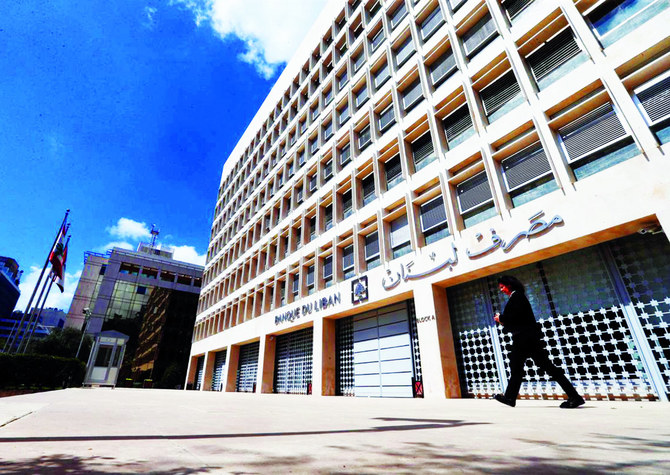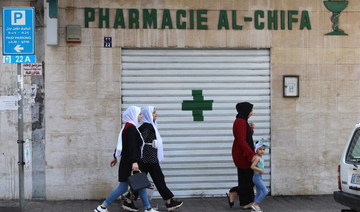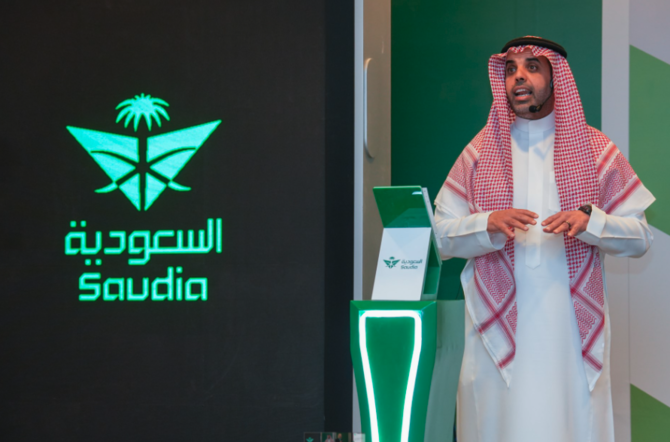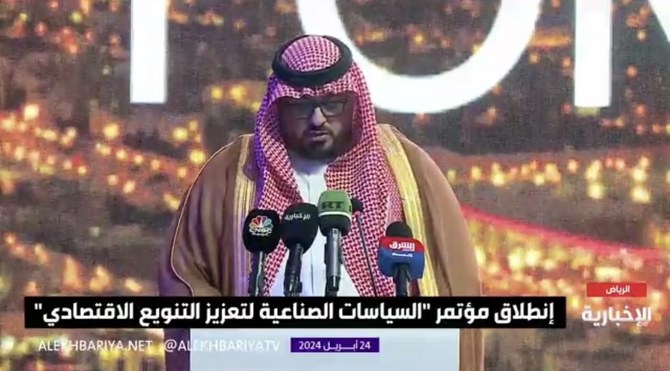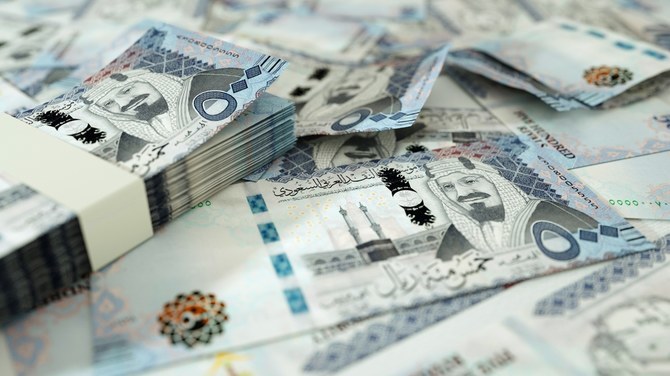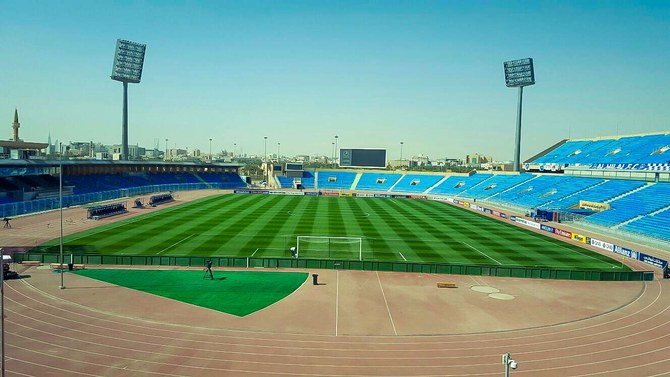BEIRUT: Lebanon’s financial woes began with the protests in October 2019, when a series of peaceful sit-ins escalated and became a national revolution against the ruling class.
Soon, there was a steep decline in the value of the Lebanese pound against the dollar. The official rate is still 1,500 pounds to the dollar but the currency has lost more than 90 percent of its value and now trades at about 30,000.
Meanwhile, Lebanese banks decided to withhold the savings of individuals and organizations, a decision that resulted in many residents losing their life savings and the closure of numerous organizations, family businesses and startups.
“I lost $350,000 of my money because of the crisis,” Rana Chmaitelly, the founder of The Little Engineer, an educational startup for children, told Arab News. “I lost the product of my sweat, blood and tears — they took it all away. But I didn’t give up.”
In a stroke of good fortune amid the despair, toward the end of 2019 Chmaitelly was expecting a large transfer of money from a business partner. Having been denied access to the cash in her own bank account in Lebanon, her only solution was to swiftly establish an offshore, and later a freezone, company in the UAE, to which the money her partner owed her could be safely transferred.
“That transfer to the UAE saved me and my team, or else we would now be owing a lot of money to our partners,” Chmaitelly said.
Her story is not unique among Lebanese startups. The founders of Cherpa, another educational startup, which offers technology training courses to teenagers, also relocated in part to the UAE at the onset of the financial crisis. They were able to open a freezone company there and obtain residency.
“Having our money withheld by banks was awful; there was a lot of frustration,” cofounder Bassel Jalaleddine, told Arab News. “I used to waste my time queuing up in banks all day just to get $300.”
Online platforms Mint Basel Market, Kamkalima and Ounousa are just some of the other startups that relocated operations, at least partly, to the UAE.
Tech giant Arabnet has studied the effects of the multiple crises in Lebanon on the startup ecosystem, surveying 60 startups and 15 stakeholders. Its report, which has yet to be published, reveals that about half of the startups have moved their headquarters or parts of their businesses outside of Lebanon, Omar Christidis, Arabnet’s founder and CEO, told Arab News.
As if having their capital withheld by banks was not bad enough, startups had to deal with another devastating blow at the end of 2019: the suspension of Circular 331 by Banque du Liban, the country’s central bank.
Announced by BDL in late 2013, Circular 331 was a mechanism that injected more than $400 million into the Lebanese enterprise and tech markets. The limit was raised in 2016 to $650 million to foster even more innovation and encourage banks to invest more in startups. It was hailed as a “holy grail” for businesses in the country.
The benefits were felt for six years, said Elias Boustani, the former chief operating officer with startup consultant Wamda, despite concerns that a bubble had formed that was leading to ridiculously high valuations of startups, and affecting salaries in the tech sector.
“The circular is a BDL issue and this allowed the banks to use their own equity and to be subsidized by BDL in order to invest in startups or in funds investing in startups,” said Walid Hanna, the founder and CEO of Middle East Venture Partners in Beirut.
HIGHLIGHTS
Capital locked away in banks. Circular 331 put on hold. Brain drain and the August 4 blast. How have Lebanese startups survived?
Lebanese startups are feeling the pinch. Engulfed by multiple crises, they are facing a unique set of challenges they have never had to contend with before, and are desperately looking for solutions.
“The money they allocated to the funds and to the startups was 100 percent used and depleted; it was all spent or invested. And now BDL and the (commercial) banks have no intention to reinvest in startups according to Circular 331 because, obviously, they have other priorities.”
These other priorities include attempts to address a crippling economic crisis and adjust to the hyperinflation of the currency.
MEVP told Arab News that the number of Lebanese operational startups before the crisis began in 2019 was 25. This number has fallen to 15, with seven of those struggling to remain afloat.
“The financial and economic crisis in Lebanon has impacted the ability of startups to invest in markets outside Lebanon,” according to MEVP. “The Lebanese (pound) has lost more than 90 percent of its value, making it impossible for Lebanese startups to generate substantial revenues.
“Previous funds raised are frozen in banks; these ‘Lebanese dollars,’ dubbed ‘lollars,’ stand at 19 percent of their US dollar value, making it impossible for Lebanese companies to invest in their growth.”
Some sources of funding, such as regional accelerator Flat6Labs, have put financial support to their Lebanese branches on hold.
“I remember we were among the last batch to receive funding in 2019 before the (suspension of Circular 331),” Adnan Ammache, the founder and CEO of gifting platform Presentail, told Arab news. “We received funding that was worth a little bit over $100,000.”
Six other startups received funding that ranged from $30,000 to $100,000, according to Ammache. No representative of Flat6Lab was available for comment.
With no end in sight to the crises, Lebanon is experiencing its most severe brain drain in more than a century. The minimum wage still stands at 675,000 pounds a month, which is now worth a meager $24.This has led to a severe loss of talent in several sectors, including technology, leaving startups at a disadvantage.
Startups that want to try to retain their human resources must pay employees in dollars, which places additional strain on already tenuous finances, said MEVP’s Hanna.
Avo Manjerian, the cofounder and CEO of shift-scheduling startup Schedex, told Arab News: “Finding and retaining talent is hard and costly but the goal is not the money; it’s creating the incomparable, flexible and broad-minded culture in our small startup.”
Schedex soft-launched in October 2019, just as the economic crisis was beginning.
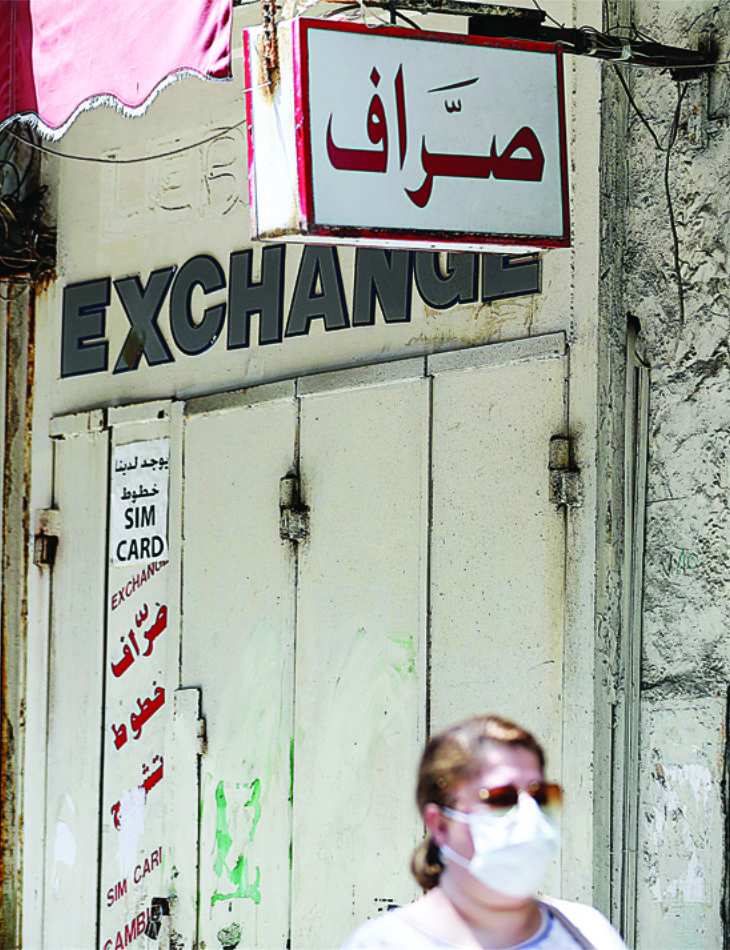
A woman wearing a face mask walks past a money exchange office in the Lebanese capital Beirut. (AFP/File)
“We pay our employees in fresh dollars from our investment because we want to be fair and we don’t want to take advantage of the situation,” Manjerian said.
Other startups such as Cherpa and Mint Basil Market said they also pay in dollars, in an effort to be “fair,” and having a bank account in another country, such as the UAE, helps with this.
Boustani said that some startups concerned about losing employees are also offering staff the chance to relocate to the UAE, Turkey or other countries and work remotely. Murex, for example, helped workers in Lebanon move to the company’s offices in France.
The devastating explosion at Beirut’s port on Aug. 4, 2020, delivered yet another blow to Lebanese startups. Buildings in the Beirut Digital District, the hub for Lebanese entrepreneurs, were badly damaged, including the offices of several startups including Schedex, Sympaticus and Moodfit.
Businesses in other parts of the city were also affected by the explosion, including Buildlink, FabricAID, Compost Baladi SAL and Basma, according to the Sharjah Entrepreneurship Center. The center launched an aid initiative that distributed $100,000 equally among 10 high-impact Lebanese startups affected by the blast.
Looking to the future, to say that the Lebanese are resilient is an understatement. They are a stubborn, determined people, and this is reflected in the determination startup founders to succeed at all costs.
“We have been operational since May 18,” said Hussein Sleiman, the founder of Find a Nurse, an award-winning online platform that supplies trusted caregivers.
“We have stopped at nothing. And while we of course aspire to expand to be a global startup, we plan to make our headquarters in Lebanon — where we can employ people residing in Lebanon and benefit our country.”



